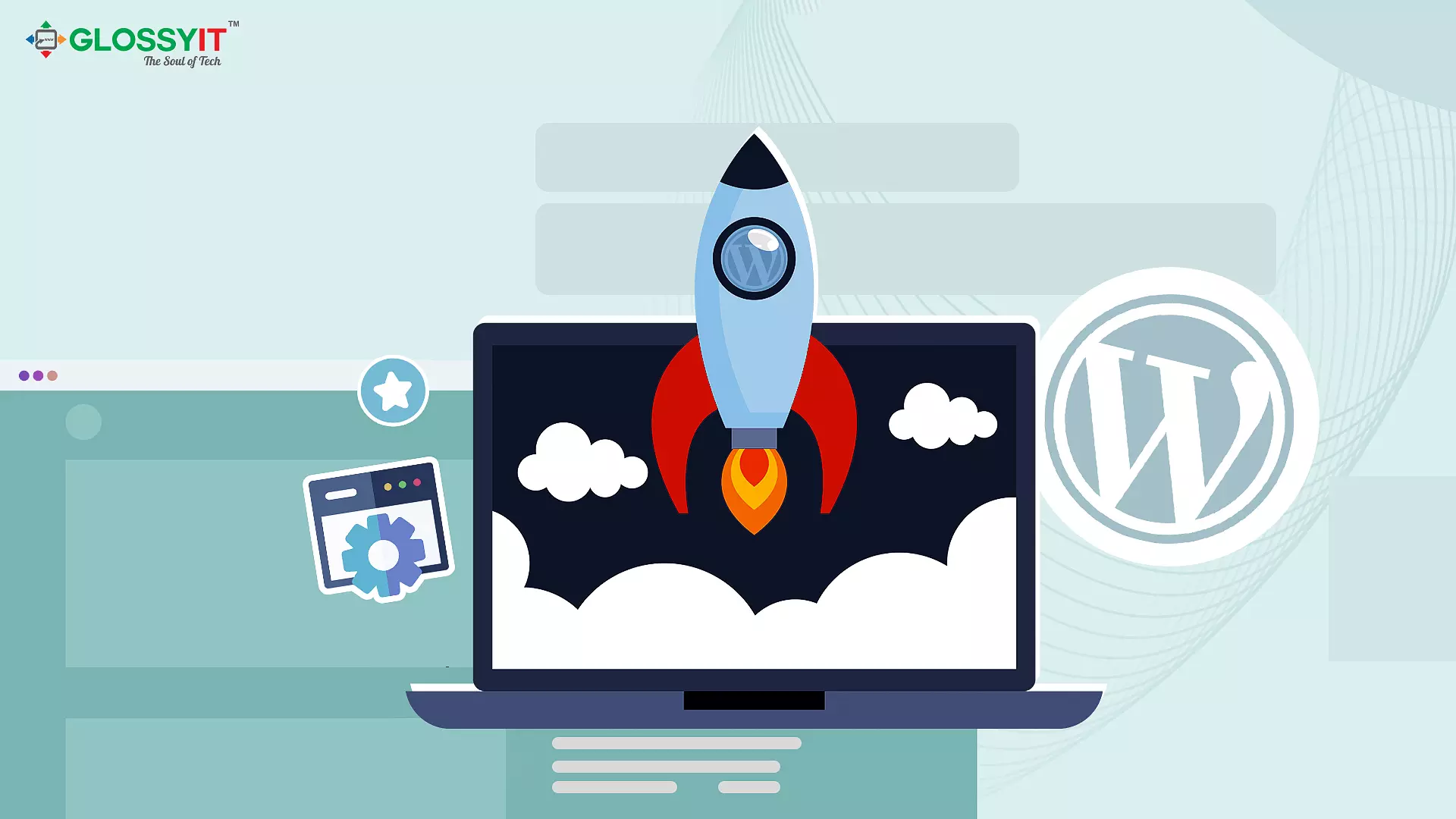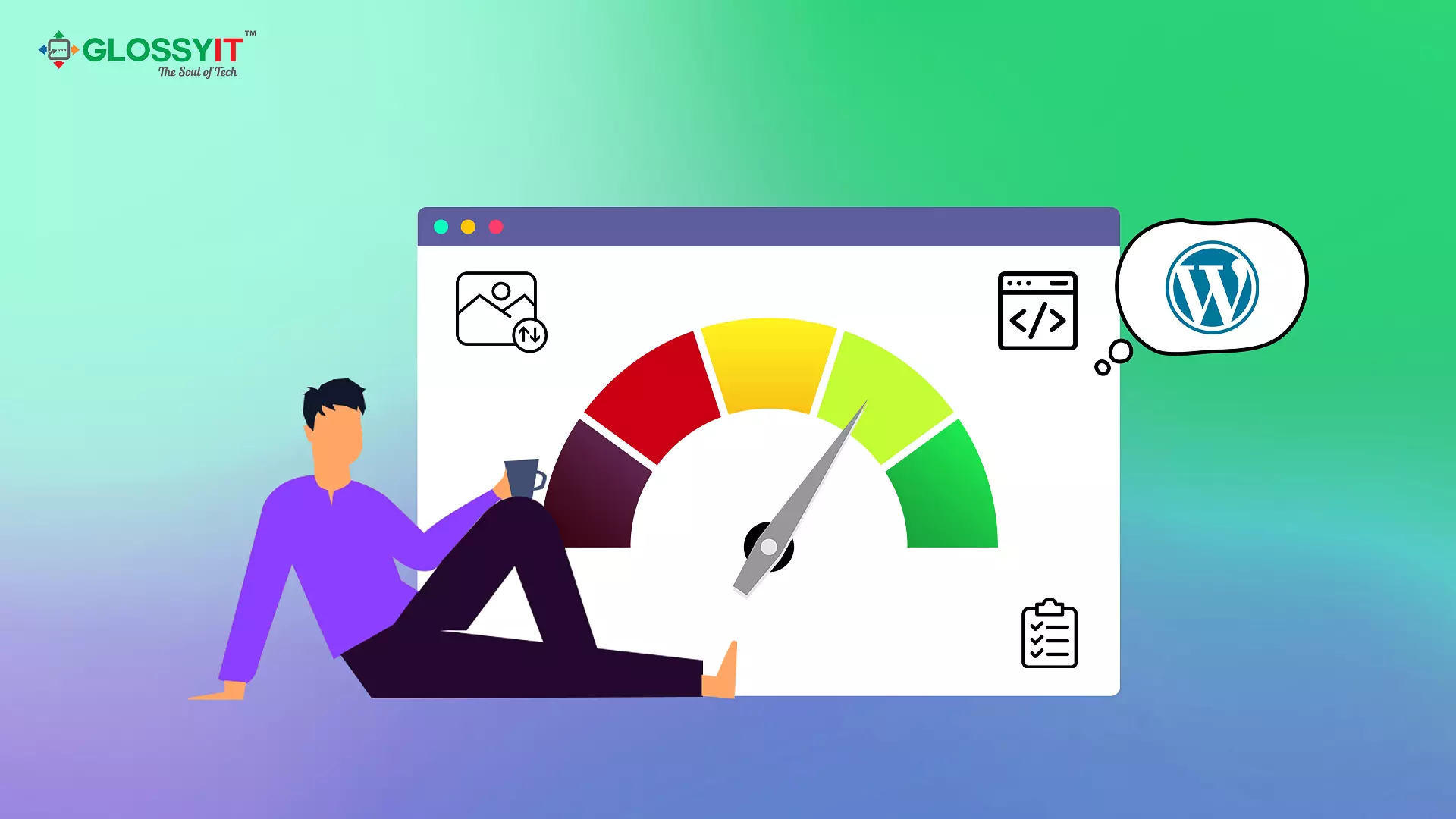- Blog
How To Speed Up Your WordPress Site to Improve Performance

If you are maintaining a WordPress site, you may encounter problems with site loading time. Slow-loading sites will receive adverse impacts from both users and search engines. To resolve this issue, you need to take proper actions to speed up your wordpress site. There exist a lot of ways that will give you the chance to solve this issue but many feel confused while doing it properly.
For a smarter sustainable decision, all you need to do is to find out the actual reason behind your site’s poor performance.
From this article, we are ready to clear all your confusion and try to give all your answers to speed up your WordPress site.
Steps to Speed Up Your WordPress Site
Don’t panic! We have assisted numerous non-tech professionals to speed up WordPress sites for the past few years. Although an optimum configuration is the key to success in this field, you need not overthink this matter, as we are here to help you with the following few tips and tricks-
Identifying the ‘Hosting Server’ Issue
Hosting servers play a crucial role in the performance of any WP site. A longer-than-expected server response time can negatively affect your site.
The solution to this issue involves using a properly located hosting server, which will not only reduce your site's loading time but also enhance its overall performance.
You will also manage to overcome other problems like vulnerable performance, unexpected security breaches, and slower software updates.
Cache Page Configuration
Suppose, you've posted attractive and interesting content for your audience but they have trouble with slow loading times when visiting your page, it could be because your site's cache settings aren't set up correctly.
So, how this could hurt to speed up your wordpress site? Well, if you fail to fix this issue in the first place, you will eventually lose traffic.
Our suggestion for you is to use Caching Plugin for your WordPress site. This will benefit you by making your site run smoothly and faster. Also, merging your caching plugin with a web application firewall will enhance the highest performance in a faster manner.
Page Size and Load Time
Larger pages with extra large images can affect the performance of your WordPress site, so it is wiser to pay attention to the size of individual pages and their loading times.
If you want to solve this issue, we recommend removing unnecessary and gigantic images for proper boosting. With this removal, your site’s page load time will reach an optimal limit.
Proper Use of Extensions/External Scripts
If you are using too many external scripts on your page headers, you need to limit them to a minimum, as this will automatically slow down your page loading time.
To solve this issue, we recommend that you avoid using too many third-party ads or extensions to ensure that your site properly performs in the search engines.

Fixing Underperformed Plugins
Underperformed or slow plugins harm websites in different ways. A poorly coded WordPress plugin may create unique problems that might be responsible for future bad performance for any good content site.
Such complications should be taken care of with proper use of appropriate plugins. These suitable plugins can automatically resolve this underperformance and speed up your WordPress site.
You should also remember to run a speed test just before and after adding any faster plugins to your site to check its overall compatibility and efficiency.
Image Optimization
Images give life to any content. Without images, your content will remain vague in front of your readers. As a result, most of the bloggers and developers prefer to include images on their WordPress sites.
However, any website will face unexpectedly slower loading time if the image files are not optimized properly.
If you want to feel less stressed about image optimization, you can choose one of two types of images: JPEG or PNG.
Updating WordPress Site
Regular checking on updates for your websites, plugins, and themes will give you the advantage of fixing several issues frequently and confidently.
Without proper updates, you may likely face difficulties regarding security, bugs, threats, unreliable connections, and so on.
Background Process Optimization
Every WordPress site has an active background processing system for regular updating and other performance-related issues.
If you want to improve your site’s performance and speed up your WordPress site, you must also check the backup plugins and excessive search engine crawling. By doing this, your site’s speed will not get slowed down drastically.
Proper Use of CDN
CDN or Content Delivery Network is a network that can help your server sync with the hosting server and load from the nearest locations of your visitors.
More precisely, it will reduce the immense loading time of your website even if the hosting server’s location is far away from the page visitor.
As a result, proper use of CDN will bridge the gap between your site visitor's expectation and the site’s loading time and thus create an improved performance.
Use of Light Themes
When you use WordPress, you'll discover many exotic and impressive-looking themes in the store. However, you might not realize that these gorgeous themes often have poor coding and larger images.
If you install those mesmerizing themes and plugins, you will face long-term consequences, as they will significantly reduce your site's speed.
Some Advanced Tips for Fine-Tuning Your WordPress Site
With the above-mentioned tips, you will be able to generate as much speed as you want for your WP site. However, if you want to take care of every fraction of a second, then you should optimize your site with a few more technical activities.
These tips and tricks require an advanced level of knowledge about site file modification and PHP basics. Furthermore, you should remember to back up your site to avoid post malfunctions.
Now, let’s look at a few of our advanced tips:
Long Post Modification
Any blog can attract its targeted readers by retaining its longer status. This is important to get a higher ranking as well. However, much longer blog posts may turn into your worst nightmare occasionally, as it might heavily hurt your site’s overall loading time.
You can bypass this issue by developing multiple pages to place the longer post content.
By doing so, you can have the freedom to add a Page Break block, which can initiate a new page on your blog post, and then, the overall WordPress functionality can be improved.
Limiting Database Calls
Unfortunately, many WordPress themes are not properly coded or equipped with many unnecessary request functions. These poorly coded themes create many back-end problems by initiating spare calls to the database.
As a result, databases need to answer those calls, which hampers the page loading speed.
You can use child themes to reduce these database calls and see the sudden improvements in your site’s performance.
Lowering External HTTP Requests
Improving your WordPress site’s performance can be affected by the presence of outside files on different themes and plugins. Many external resources like YouTube, Facebook, Google, or analytics services provide videos, images, scripts, or stylesheets that are some common outside files.
Sometimes, you need to allow these external files to work on your site. They are well-optimized and can easily lessen the stress of hosting them on your site.
However, your plugins may initiate a lot of these requests from time to time which can seriously lower the speed of your WordPress site.
To avoid such a problem, you need to deactivate most of these scripts and styles created from external HTTP requests or integrate those into one single file. You can see the real difference in your site’s speed and performance.
Reducing Post Revision
WordPress database might get burdened with a lot of post revisions. These post revisions occasionally affect various database queries from your site’s installed plugins.
With this type of interruption, your website may load at an unnaturally lower speed, ultimately angering your visitors.
To solve this issue, our recommendation for you is to include a simplified coding line in your wp-config.php file:
define( 'WP_POST_REVISIONS', 4 );
Now, your WordPress site will include only the last 4 revisions of each page and deactivate older codes automatically to save you from low speed.
WordPress Database Optimization
If you have been using a WordPress site for a while, your site’s database might have already stored many unnecessary files from plugins.
These files are just a burden for your database and must be removed as soon as possible.
To solve such an issue, you can add two popular plugins: the WP-Optimize and the WP-Sweep Plugins.
These tools will eradicate the unwanted and unused files stored inside your database and eventually optimize the database structure with a few clicks.

How Glossy IT Can Help You to Speed Up Your WordPress Site
The growth of an online presence is a must for any business to flourish. As a result, your website also needs definite growth. Glossy IT's team of experienced professionals is expert enough to give your site a growing and sustainable solution. Among these members, we have a few expert developers who have been working successfully with developing WordPress services for clients globally for the past few years. You can simply give us a shout to fix any issues regarding improving your WordPress site’s performance and optimization by clicking here.
End Notes
Congratulations on reaching the end of this discussion. We hope you have learned a lot to speed up your WordPress site. You are now experienced enough to detect most of your site’s negative issues. However, if you still feel perplexed then you should take expert opinions to improve and get growing.

















